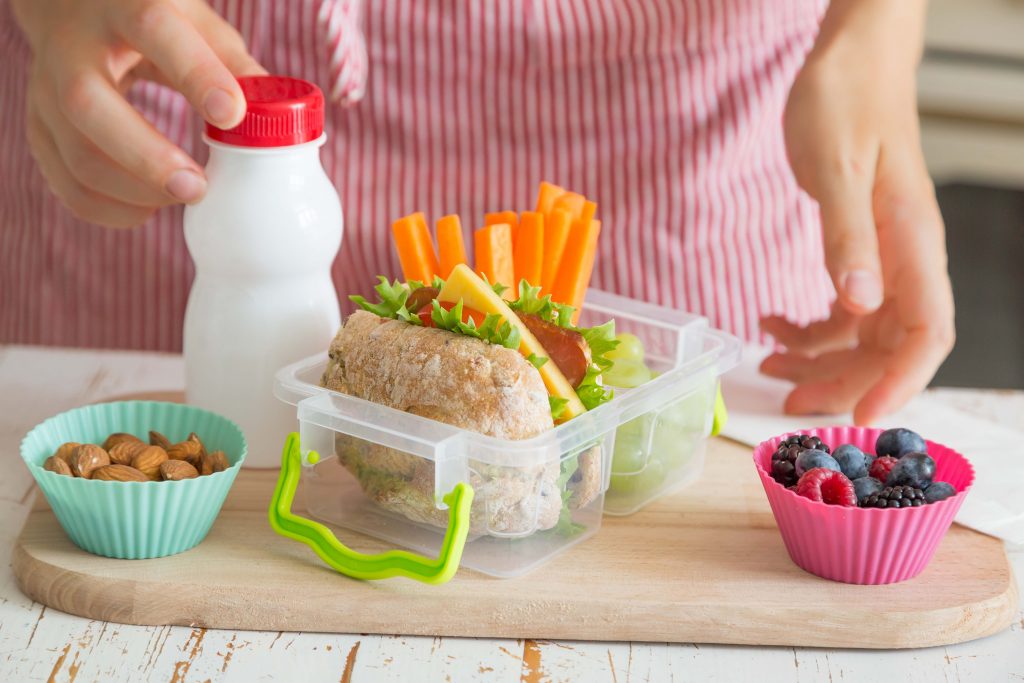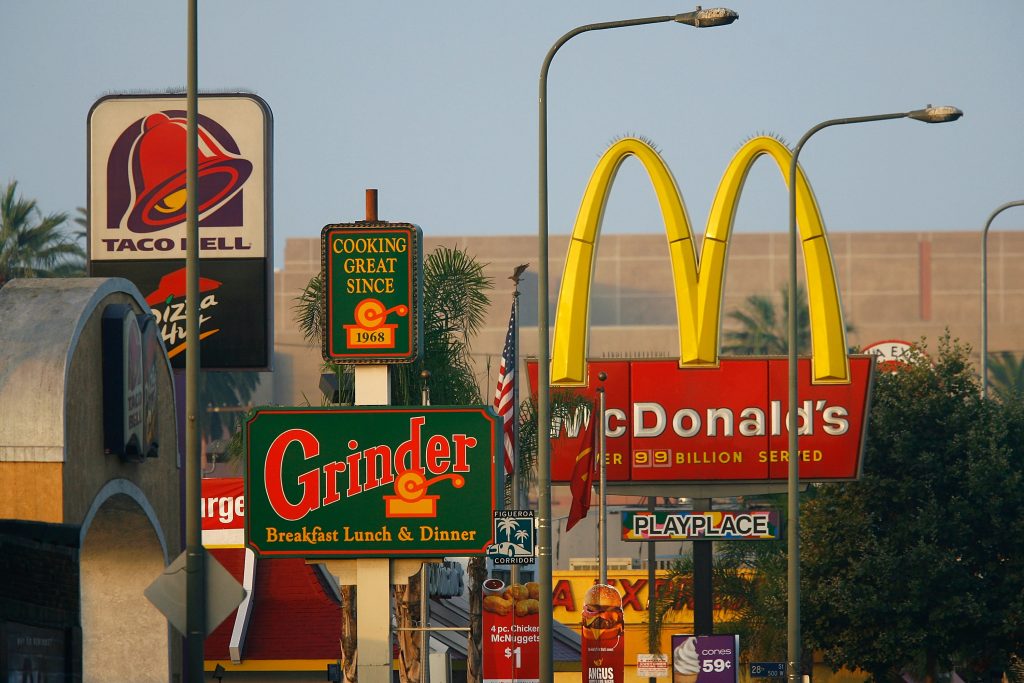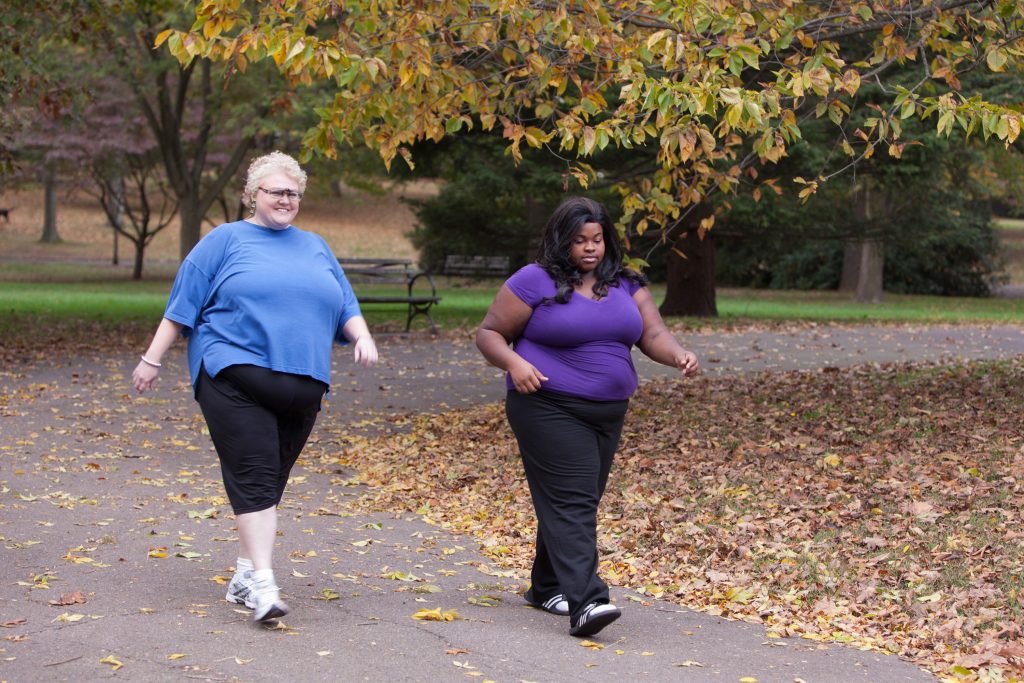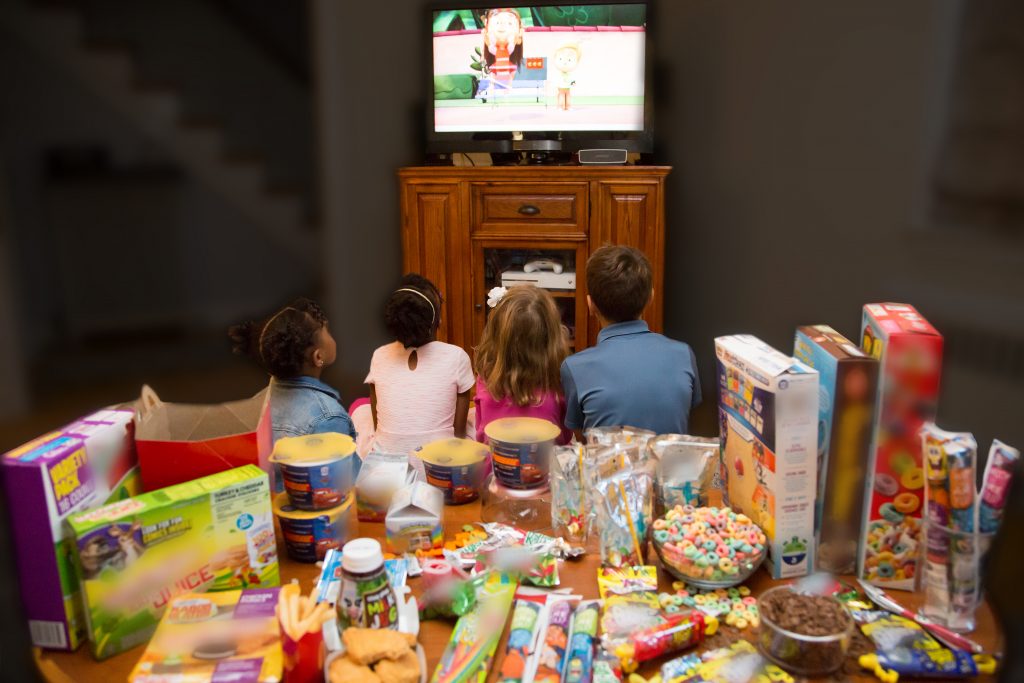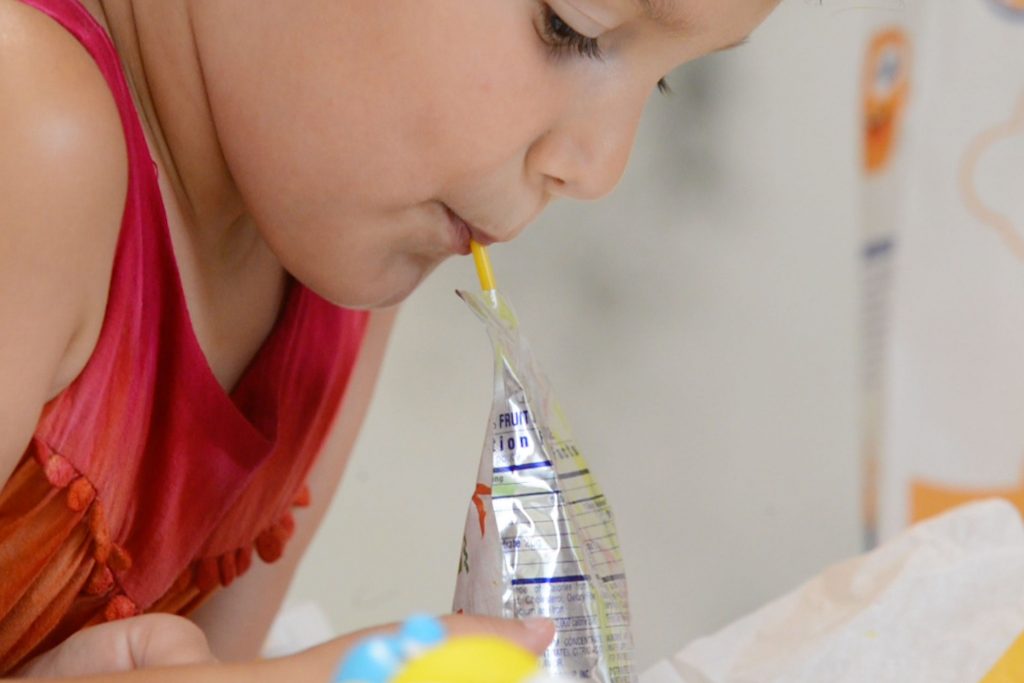Rudd Center
Healthy Drink Can Pack a Punch in Preschooler’s Lunch
'It is much easier than parents may think to pack a healthy lunch,' says postdoc Maria Romo-Palafox, author of a new study.
February 22, 2018 | Daniel P. Jones, UConn Rudd Center
Scientists Identify Weight Loss Ripple Effect
When one member of a couple commits to losing weight, chances are the person's partner will lose weight, too, a UConn study says.
February 1, 2018 | Combined Reports
Preschoolers Still See TV Food Ads Despite Companies’ Promises
Because of a loophole in the companies’ pledges, children under 6 are still exposed to TV food ads, at an age when they are particularly vulnerable to advertising.
December 26, 2017 | Daniel P. Jones, UConn Rudd Center
Food Swamps Predict Obesity Rates Better Than Food Deserts
A new UConn Rudd Center study found that easy access to fast- and junk-food outlets was a better predictor of high obesity rates than lack of access to affordable, nutritious food.
November 14, 2017 | Daniel P. Jones, UConn Rudd Center
How People Cope with Weight Stigma Affects Their Health
A focus on positive coping strategies could help improve health for those who experience being teased or bullied because of their weight, according to new research by the UConn Rudd Center.
November 9, 2017 | Daniel P. Jones, UConn Rudd Center
Despite Progress, Most Food Advertising to Kids Still Unhealthy
'Ten years after the launch of food industry self-regulation, food advertising to children remains far from the goal of supporting healthful diets.'
November 6, 2017 | Daniel P. Jones, UConn Rudd Center
Many Americans Blame Themselves for Weight Stigma
A new study by the Rudd Center for Food Policy and Obesity at UConn shows that many individuals who are targets of weight bias blame themselves for the stigma they experience.
October 30, 2017 | Daniel P. Jones, UConn Rudd Center
‘Health Halo’ Effects of Food Ads Can Mislead Kids
A new UConn Rudd Center study shows that healthy lifestyle messages in food ads can make unhealthy products seem healthier to children.
October 27, 2017 | Daniel P. Jones, UConn Rudd Center
Fast-Food Restaurants Not Promoting Healthy Kids’ Meal Options
Breaking News: Yesterday, McDonald's announced it is making Happy Meals healthier, a move advocated by UConn's Rudd Center.
August 10, 2017 | Daniel P. Jones, UConn Rudd Center, and Bret Eckhardt & Elizabeth Caron, University Communications
No Chocolate Milk? No Problem, Kids Get Used to Plain Milk
A UConn Rudd Center study finds that removing flavored milk from school lunch menus is an effective way to reduce children’s consumption of added sugar.
July 14, 2017 | Daniel P. Jones, UConn Rudd Center
